The Secrets of Perfect Strangers: Interview with Paolo Genovese
He has an iPhone6. And he left it on the table face up, so that everybody in the room can see when he gets a message. Of course nobody is going to ask him to read it aloud... Jokes, aside, Paolo Genovese, the director of Perfect Strangers, the Italian box office hit on how cell phones and social media have entered into fragile territories and affect almost everyone's lives, made himself available to share some of the secrets of his latest film.
Genovese, who is also co-writer of Perfect Strangers, has a history of having directed more than three hundred commercials and several successful films, including Tutta colpa di Freud (2013) and :a Banda dei Babbi Natale (2010).
“With this film, the idea was to sketch out that secret life we cannot come clean about, up until 20 years ago, our secrets were kept inside us: today, they are buried in our mobile phones, which have become a little bit like our black boxes,” Genovese has often said about his movie, where a group of friends play a dangerous game: during a weekly dinner everybody should place their cell phone face up on the table. Each message received should be read out loud and every call must be taken on speaker for everybody to know. Secrets, some innocuous others dangerous, are therefore revealed and people who are familiar become strangers.
Perfect Strangers which features a star studded cast, Valerio Mastandrea in the role of Lele, AnnaFoglietta in the role of his wife Carlotta, Kasia Smutniak in the role of Eva, Marco Giallini in the role of her husband Rocco, Alba Rohrwacher in the role of Bianca, Edoardo Leo in the role of her husband Cosimo and Giuseppe Battiston in the role of Peppe, is nominated for nine David Di Donatello awards (The Italian Oscars), including best picture and best director of the year.
Produced by Medusa Film and Lotus Productions, the film has had its International Premiere at the Tribeca Film Festival on the 14th of April, and rumors are that Harvey Weinstein attended such screening. Perfect Strangers was the only Italian title selected to compete in the festival's narrative section, and it raised buyers’ interest worldwide.
You attended the screenings, how was the film received by American audiences?
I attended two screenings and the reaction was amazing. Comedies are the sort of films that could definitely be totally lost in translation. Dramas and thrillers speak a more universal language while comedies risk having a sense of humor that is understood only by people in their native country. People laughed and reacted just the same way audiences did in Italy. At the end of each screening there always was a Q&A, and I was asked lots of interesting questions, at times even more interesting than in Italy. Usually, back in Italy, I was asked both by audiences and journalists alike “how did you get the idea,” “how did you chose the cast.” These are good but ordinary questions. While here people seemed to want to go deeper, both on a technical and a narrative point of view. They were more specific about situations captured by the film. This showed me that the film was viewed with careful attention in all of its context.
In Italy the film has been defined as a Comedy, and even the representative of the rebirth of the famous Commedia all'Italiana. Here in the US, it's been defined a Dramedy. Which description do you consider more accurate?
In Italy we are losing grasp of the real concept of comedy and confusing comedy with funny films. In reality Commedia all'Italiana is a drama of some sort, the films were brilliant comedies that didn't lack of sadness and social criticism. A comedy captures aspects of our society that are difficult and dramatic but with some sort of lightness. Some of the greatest Italian comedies that have received awards and honors all over the world and have been made by some of the masters of Italian cinema always included some sort of drama: there was defeat, loss and even death. La Grande Guerra by Mario Monicelli is one of the greatest Italian comedies of all time and the two main characters end up dying. Even more popular comedies, like the films featuring Fantozzi (a stereotypically unlucky Italian accountant created by actor Paolo Villaggio), are very funny but they actually capture in a deeply sad manner the situation of the white-collar class. Therefore I don't find any contradictions in defining my film either a dramedy or a comedy. While often comedic films, where laughter is the one and only scope of the movie, are mistakingly labeled as comedy.
What happens in Perfect Strangers is very familiar, it's something that could happened to anybody, therefore the audience identifies strongly with the characters. That is not achieved only by the storyline but also by the way the film is actually shot.
When shooting a film around a dining table, the filmmaker definitely tries to invite the audience in, as if they are participating in the dinner itself along with the actors. In this film there actually is an empty seat that seems to be there just for the spectator as we used a square table for eight with only 7 guests. Conceptually, the 8th seat is where the audience is “sitting.” Many shots were indeed made from that empty seat so that you'd feel like you are a part of what is happening. There was no room for any directorial virtuosities, my directing was and is focused on the story without any
aesthetic tricks that, especially in this film, were not needed.
The idea of the film was yours, and you wrote it with four other screenwriters (Filippo Bologna, Paolo Costella, Paola Mammini and Rolando Ravello). How was that collaborative process and how did you maintain your original concept intact?
It was very rewarding. In a film like this, a piece that captures real life with many different characters and numerous stories, it is useful to have many different personal stories. You end up having so much material that puts you in the position to make a selection of “the best of,” meaning the individual experiences that you need the most to tell your story. The way I collaborate with other writers is very rewarding: we meet twice a week and each one of us contributes his/her ideas. Then I use the other 5 weekdays to actually sit down and write, I do need to write things myself, in order to organize all the different ideas. We then meet again and criticize or comment what's been written and we go on.The great advantage of this process is that we have lots on the table. In a film like this where people can talk about anything that comes to mind this allows you to have a unique narrative level.
During the dinner the characters don't only address the calls and messages they receive but they also mention numerous issues, many reflecting issues of Italian society. An example can be Peppe's short term contract that has been illegally renewed for ten years or the role of children in a married couple.
It's veiled criticism, but the film does not want to criticize Italian society. The choice to address some topics, like religion, kids, homosexuality, is simply to give realism to this dinner among close friends. If you sit down at the table with your buddies you talk about all different things. And this is what happens in the film. You never know where conversations may lead you to.
Was there any space for improvisation for the actors?
Very little. I really care about what is written on the script. I spend hours choosing an adjective or a specific word. Italian is a very rich language, we have different terms to describe the same thing so the choice of words is vital. I did give the actors some freedom in expressing the characters' long term friendship: so the sly remarks and private jokes among them were often unscripted and this added to making the whole more realistic.
Is there a character you feel closer to or that has some autobiographical traits?
Not really. All writers include something personal in what they write because real life always is source of inspiration. Films that portray real life, in order to feel real, have to capture something that belongs to you. That said, I absolutely try to avoid to tell stories that are entirely based on my life. I am afraid that the lack of detachment from what has happened to you personally could make you believe you are telling the story of some interesting characters but in reality they are terribly boring. This happens because they are seen through the eyes of your personal experience. It's almost like when your friends show you the videos of their vacations; they are having a blast reliving through those moments but you find them incredibly tedious. That emotional element speaks to you but fails with others. I suppose that when you'd rather tell other people's stories, stories that have moved you in the first place, they most likely would move others as well.
If you had to describe each character what would you say?
Bianca (Alba Rohrwacher) is fragile, but in the end her fragility turns into strength. That's often the case in real life, people who seem to be sensitive and easy to break are the ones who end up having stronger reactions and actions than others. Eva (Kasia Smutniak) is diabolical. Nobody really understands why she suggests to play this game. Only at the end you realize she is the only one who couldn't have discovered anything painful, because her man loves her. Rocco (Marco Giallini) is the classic family man. I wanted to represent a very Italian figure, someone reassuring, who tries to keep the family together, who loves his wife no matter what... all good values. Lele (Valerio Mastandrea) represents the average man, who, though, appears to have no values but definitely redeems himself. Thrown into the right situation he can show his true valor, just like the aforementioned characters of La Grande Guerra. The story is obviously very different, but the concept of giving a character the opportunity to redeem himself is interesting.
What role does the lunar eclipse play?
The eclipse is simply a metaphorical situation. I used it to give the film tempo. The film is about the unsaid, and the eclipse, just like the characters, hides something else. Secrets are what we cover up, keep hidden from our life, during a lunar eclipse the Earth's shadow hides the Moon from view. I thought it was an interesting metaphor.
What about the “I Will Survive” ringtone of Cosimo's phone, is that a metaphor too?
The film definitely is based on the double, on the said/unsaid, public/hidden. Maybe in the States, because you have a different understanding of the lyrics, it's a bit different, but in Italy “I Will Survive” has two “lives.” It can be a fun song you can dance to, but if you listen to the words, it's a cry of desperation. I liked this double role of the song. Generally speaking, we worked a lot of the cell phones used in the film, as we wanted them to be as real as possible, so we had to request a lot of licenses. We had to do the same for the use of apps and social media. We didn't want to talk about WhatsApp and then it looked or sounded fake. We wanted to use Siri's real voice. Everything had to be as real as possible, as in every day life: there are those we have iPhones but there are also those who have old flip phones, some use a specific song as a ringtone others don't really care to change the ringtone tat all... if anything looked fake it meant something was wrong.
We have a saying here “Ignorance is Bliss.” Is it really?
In this situation ignorance could be seen as useful, you keep going without knowing what is really going on. But ignorance can also make you suffer. At some point Carlotta (Anna Foglietta) says “we have to learn to break up” in that case the term “learning” proves that many couple would love to end their relationships but they don't know how to. So they ignore what is going on, they embrace ignorance, and this ignoring reality doesn't make you really happy, only apparently.






























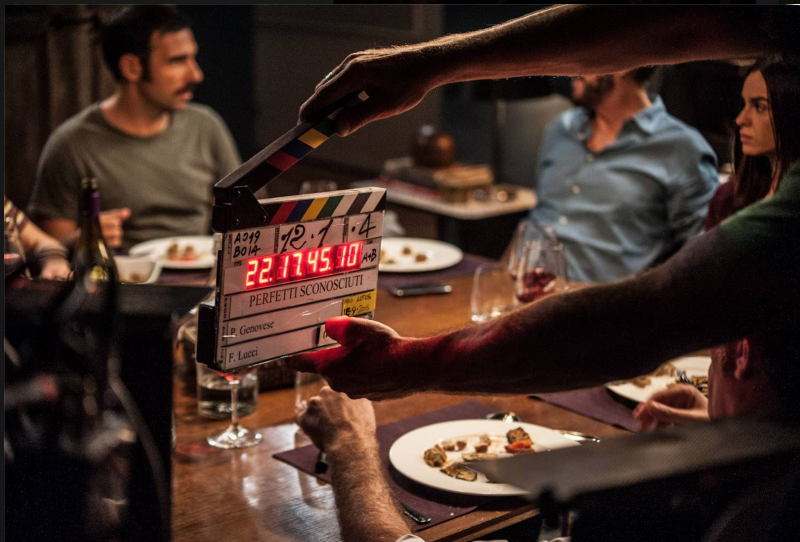
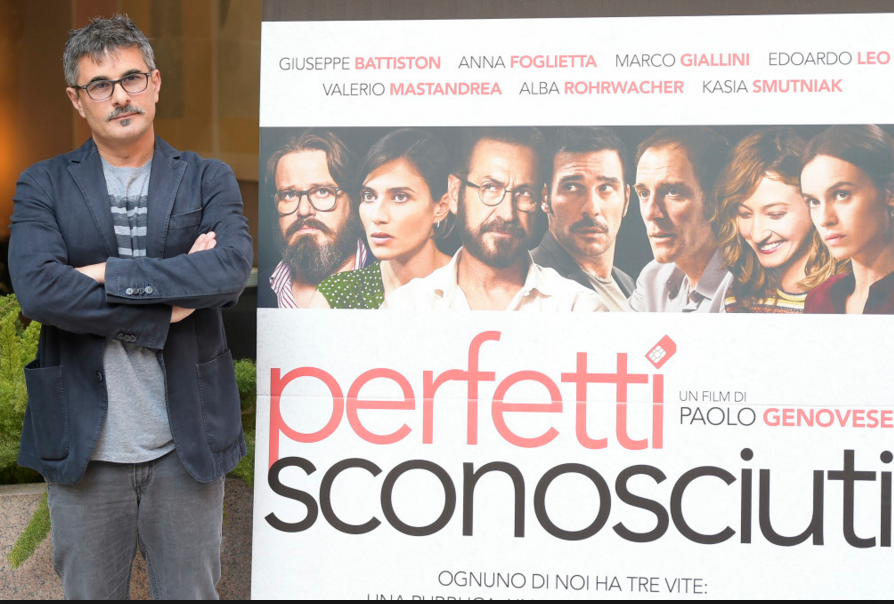
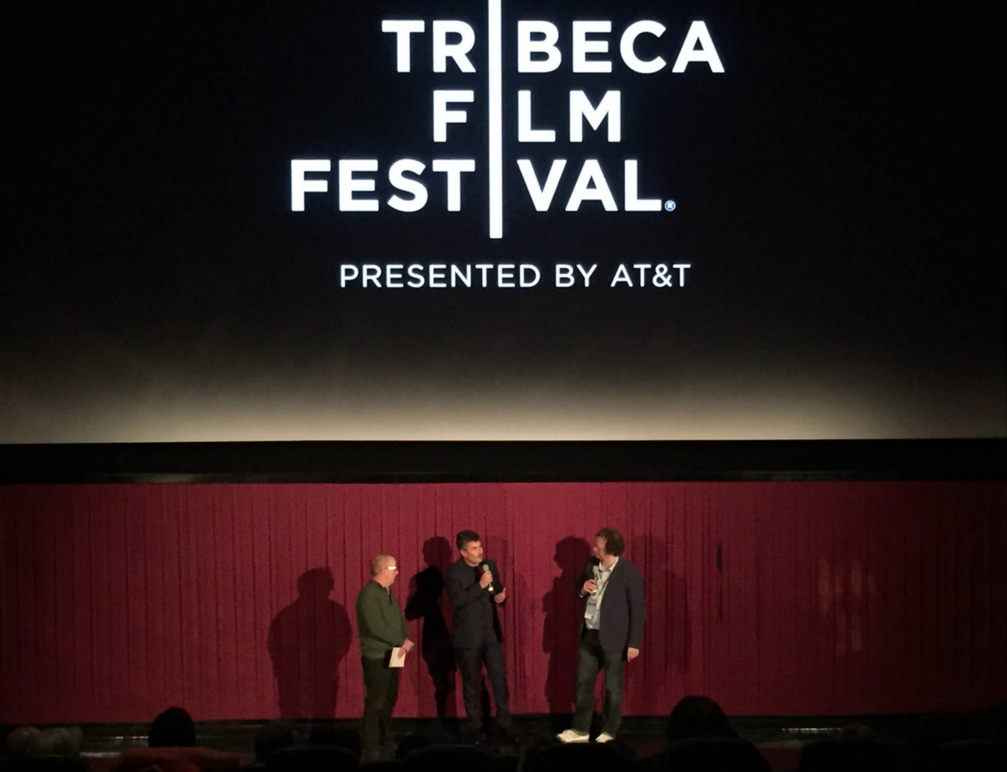
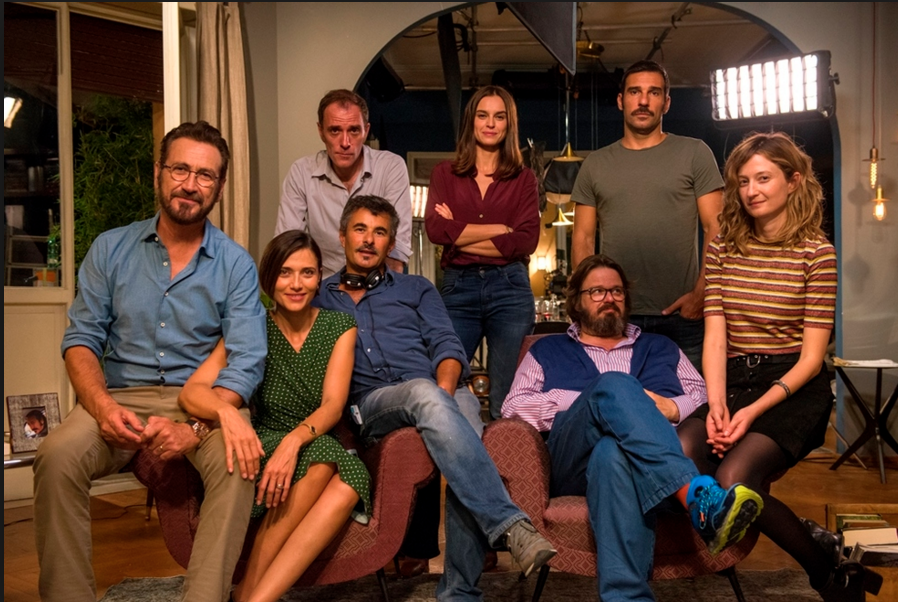
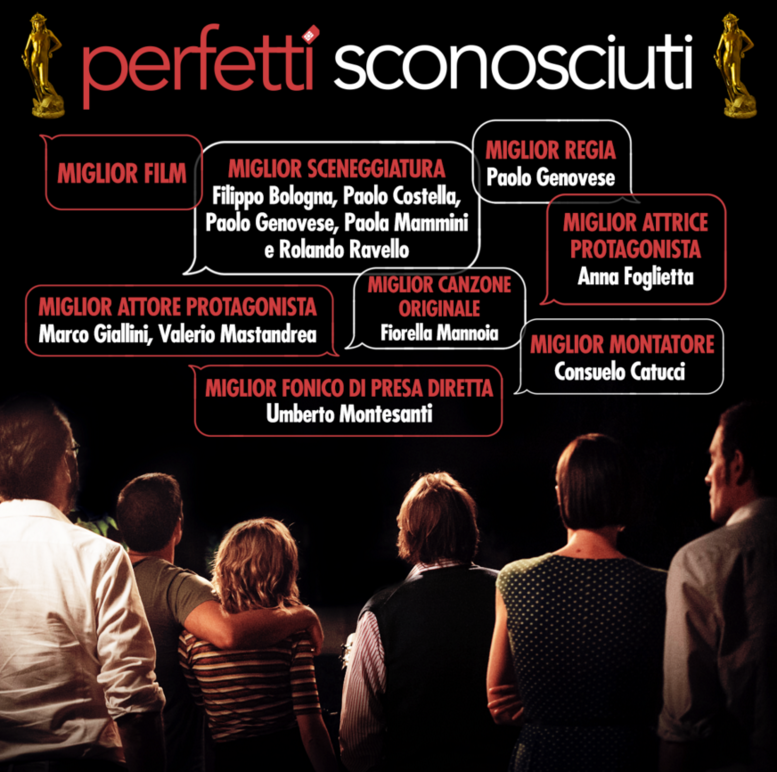



i-Italy
Facebook
Google+
This work may not be reproduced, in whole or in part, without prior written permission.
Questo lavoro non può essere riprodotto, in tutto o in parte, senza permesso scritto.